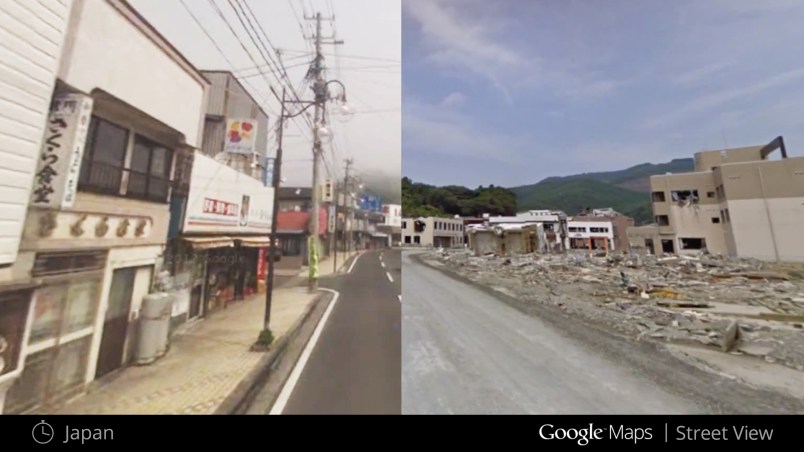OUNTAIN VIEW, Calif. (AP) — Trips down memory lane are now available on Google’s digital maps.
The new twist on time travel is debuting Wednesday as part of the “Street View” feature in Google’s maps, a navigational tool that attracts more than 1 billion visitors each month.
Street View snapshots will now include an option to see what neighborhoods and landmarks looked like at different periods in the last seven years, as Google Inc. has been dispatching camera-toting cars to take street-level pictures for its maps.
Google Inc. intends to keep adding pictures to the digital time capsules as its photo-taking cars continue to cruise the same streets gathering updates.
“As time goes by, many of these images are going to become vintage,” predicted Vinay Shet, a Google product manager who oversaw the company’s glimpse into the past. “We want our maps to be comprehensive as we build a digital mirror of the world.”
Like everything else on Google’s map, the time-tripping option is free. Google makes money off its maps from advertising, so the Mountain View, Calif., company is constantly coming up with new attractions to keep people coming back.
Even though the photos only date back to 2007, some of them illustrate dramatic changes. Some photos show how neighborhoods in cities like Tohoku, Japan looked before and after a 9.0-magnitude earthquake struck in March 2011. Others show the gradual recovery of New Orleans neighborhoods in the years following the devastation of Hurricane Katrina. Scrolling over to Washington D.C. will provide a look at the restoration of the historic Howard Theatre in the nation’s capital.
In New York, the Street View map presents a string of photos illustrating the changing skyline as the Freedom Tower at the World Trade Center was built. Even looking at the evolution of Times Square during the past seven years can evoke nostalgic feelings while gazing at a giant billboard advertising a flip-style cellphone in 2007.
The visual retrospectives aren’t available throughout Google’s maps, although Shet says there should be at least one look back in time for just about every neighborhood that can be viewed through the Street View format.
Google’s new feature is displaying more photos of major city centers over time than suburban streets because the company’s camera-bearing cars return to densely populated areas more frequently.
Adding the photos from the past will roughly double the total imagery in Street View once the rollout is completed in the next two days. Google declined to say how many pictures are already in Street View, which spans 55 countries. The look-back feature will be available in all but three of those countries: Germany and Switzerland, where government regulations restrict Google’s use of the past images, and South Africa, where technical problems have slowed the feature’s rollout.
When a retrospective is available in Street View, a small clock appears in the left corner of the current picture of a location. Clicking on the clock produces a visual portal into different time periods.
The trips can be emotional. For instance, Street View’s scenes often include people who happened to be in the frame when Google’s cars took the picture. Over time, some of these people will die and Google expects those pictures will have special meaning for survivors and other descendants.
Some Street View pictures posted through the years have also upset people who were captured in activities or visiting places that they wanted to keep private. Google now blurs the images of people who contact the company asking to be shielded from Street View. Masking will be available on the older photos too, Shet said, even if it’s just because a person didn’t like the way he or she looked a few years ago.
Copyright 2014 The Associated Press. All rights reserved. This material may not be published, broadcast, rewritten or redistributed.






